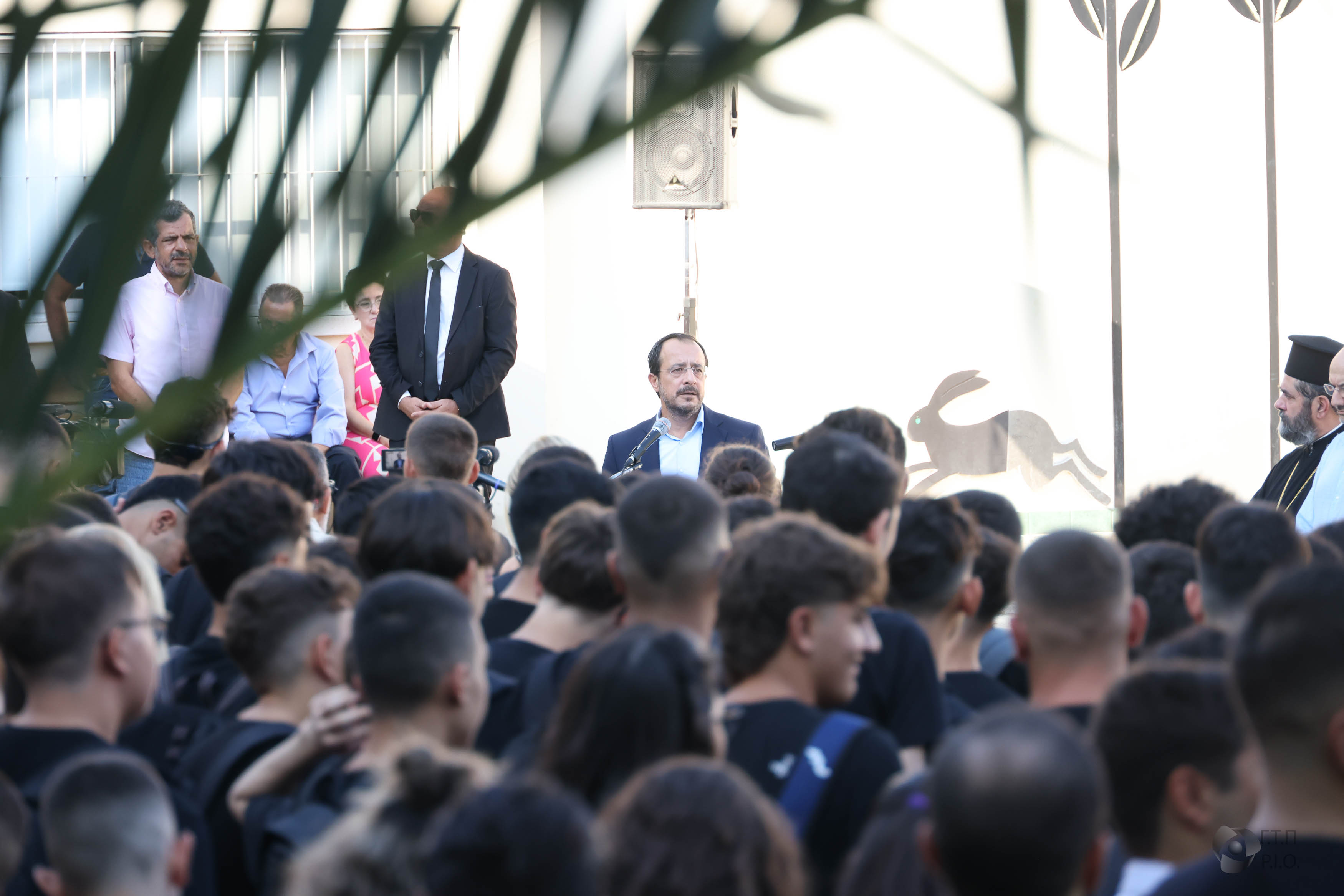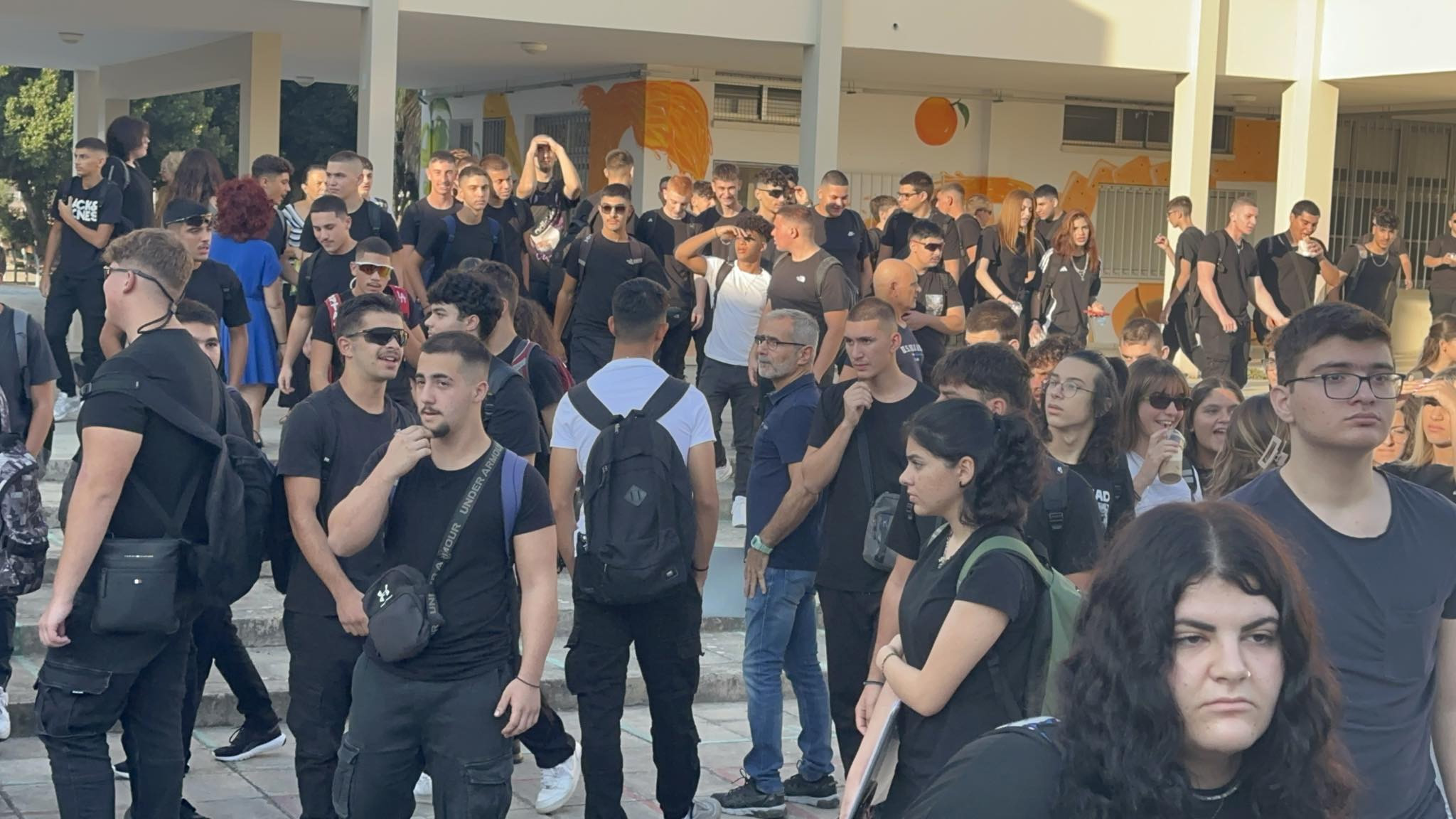The new academic year for secondary schools began on Friday with a total of 42,650 students registered.
Marking the start of the new academic year, President Nikos Christodoulides and Education Minister Athena Michaelidou, visited the Third Technical School in Archangelos, Nicosia.
“I chose to be at a vocational school because we want to send a message about the importance we place on technical education,” Christodoulides said.
He then stressed that both education and healthcare are top priorities for his administration.
“It is our duty as a state to ensure the well-being of our people. Education affects all sectors of governance. Specifically, regarding technical education, we aim to link our education system more closely with our economy and the labour market, placing particular focus on technology,” he said.
“We have an obligation to offer all our citizens equal opportunities. That is why we invest more in education and health than in any other area.”
A total of 667 teachers will be employed at technical and vocational schools this year, with 4,929 students enrolled in daytime classes and 588 in evening programmes.
Of all high school students, 24,989 will attend gymnasium and 17,661 lyceums. Meanwhile, 18 students will attend the six-year Rizokarpasso gymnasium.
A total of 7,031 teachers will be employed in secondary education this year. They went back on September 2.
This year, 108 state secondary schools will operate, 62 gymnasiums, 36 lyceums and 10 combined high schools.

Christodoulides mentioned the government’s decision to introduce a technical gymnasium modelled after existing sports and music schools.
“If we want to achieve growth that will have a long-term impact we have to invest in technical education.”
He then highlighted the government’s ongoing reforms, including curriculum updates, student evaluations, school infrastructure improvements, and long-standing issues such as air conditioning, which he said he is “committed to solve”.
On further reforms, he revealed that the government is working on the evaluation of teachers and the digital transformation of schools.
“We have a strong reform agenda, particularly in technical schools, and we will continue to implement it.
“The education ministry has already developed an action plan, approved by the Council of Ministers, which will be implemented. For us to succeed, we need the cooperation of teachers, parents, and students. This is a challenge that affects many countries, but we have a plan, and we are executing it to tackle these issues,” Christodoulides said.
Michaelideou said education “represents the state’s greatest investment and plays a vital role in society”.
“Efforts are being made to improve educational conditions, provide an inclusive learning environment, and implement reforms to meet modern pedagogical approaches and the needs of every student,” she said.







Click here to change your cookie preferences